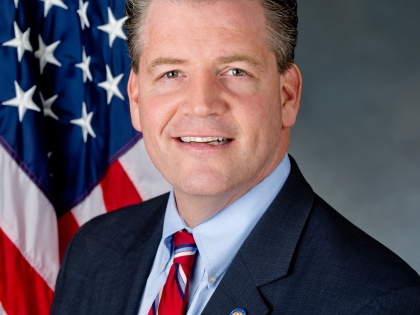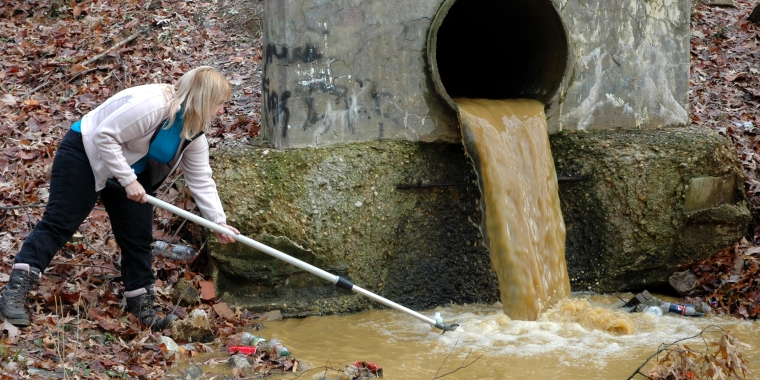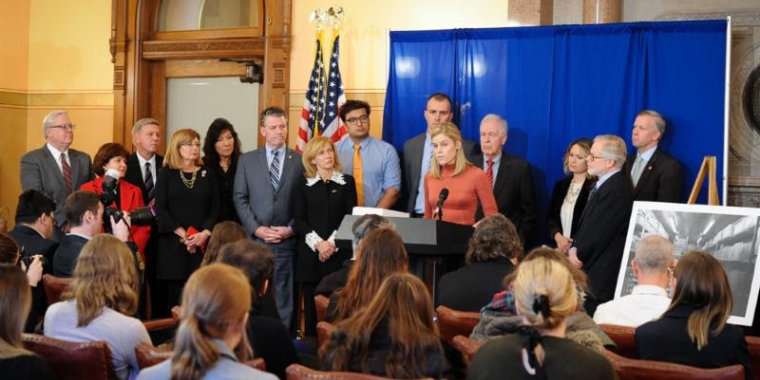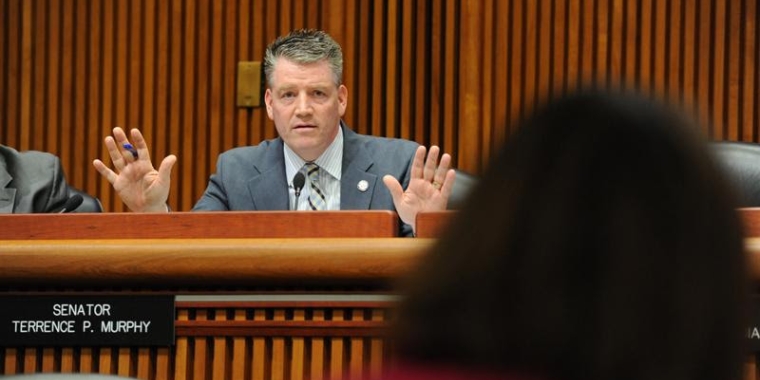
Murphy: Invest for a Rainy Day, using settlement funds
Terrence P. Murphy
May 20, 2015

JEFFERSON VALLEY, NY - New York is in line to receive yet another windfall legal settlement, from a $600 million penalty against Deutsche Bank for manipulating the London Interbank Offered Rate. State Senator Terrence Murphy says the funds should be used to make the largest clean water infrastructure investment in state history by directing the funds toward municipal separate stormwater sewer systems, or MS-4s.
"Clean water is perhaps the most basic and essential service government can provide," Senator Murphy said. "Albany has told the towns in my district they need to come up with $400 million worth of improvements to scrub phosphorous out of New York City's reservoirs, yet they haven't spent a nickel on this unfunded mandate. We know that the tax cap cannot be effective over the long-term without mandate relief, and now that we've voted to make it permanent, I'm pushing fundamental mandate relief for our communities."
Murphy wants to deliver relief from the MS-4 mandate imposed by the state Department of Environmental Conservation, which will soon go into the next phase of its implementation, carrying a price tag estimated at over $400 million in the Hudson Valley. These costs are not exempt from the tax levy cap which the Senator voted to make permanent on Tuesday.
To fund the mandate, Senator Murphy has introduced Senate Bill S.5422, dubbed the "New York State Stormwater Sewer System Mandate Relief Act of 2015," which would capture the settlement funds and direct them into the state's Clean Water Revolving Fund account, and create a mechanism to disburse the funds to municipalities statewide to pay for wet weather improvement projects.
"The federal Clean Water Act's regulations say it can be used for stormwater quality projects, yet New York State's intended use plan for these dollars say it can't be, when at the same time, we are mandating these types of projects," Senator Murphy said. "That's the definition of insanity. If Albany wants it, Albany should pay for it. My bill will get our projects eligible for State funding and keep stormwater runoff out of our drinking water."
Dedicating $600,000,000 to stormwater quality improvements would be perhaps the largest direct investment by the state in the Clean Water Fund in its history.
To ensure the money is spent efficiently, Murphy wants to establish new criteria for these projects which require the State to consider the affordability and cost-effectiveness of projects. "New York City's administrative code requires consideration of the cost-effectiveness of stormwater projects, but State law, which governs the towns where the City's water supply resides, does not," he said.
Unlike other states such as Kentucky and Ohio, New York has not taken advantage of federal guidance which allows flexibility for local governments when trying to achieve clean water goals.
"The United States Conference of Mayors has noted that although municipalities are fully aware of and willing to step up to their environmental responsibilities, they also have a fiduciary charge to ensure every dollar spent actually results in, to the maximum extent possible, the environmental improvement needed," Murphy said. "My bill will codify a requirement which is not only common-place in other states, but is also common sense. With a permanent tax cap, not only should the State fund the mandates it places on our towns, it should also be required to take into account the affordability of the proposed control options and the taxpayers ability to pay."
Stormwater quality projects around the state eligible under Murphy's bill would be projects that upgrade sewage treatment works; construct wastewater treatment plants, community septic systems and related infrastructure; provide sewer extension; stormwater retrofits; build sand and salt storage facilities; stream bank stabilizations; rehabilitation of subsurface sewage treatment systems; and extensions to sewerage collection systems. These types of improvements help scrub nitrogen, flotables, phosphorous and other harmful substances from our water supply.



